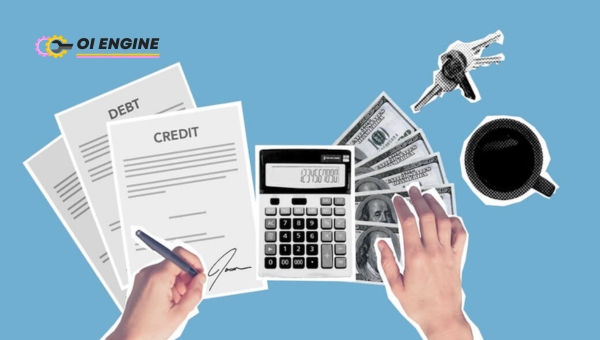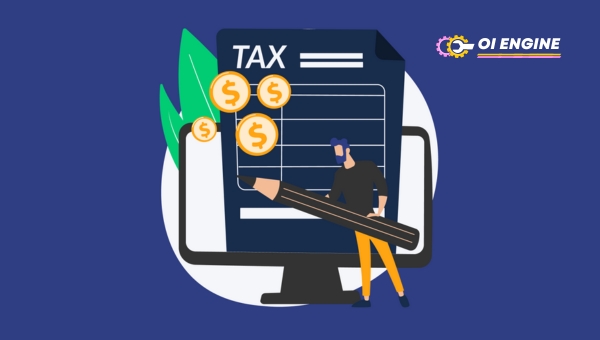Welcome to the world of real estate investing. As a newcomer, it doesn’t take long to discover that real estate bookkeeping is for sure an essential part of succeeding in your journey.
You might wonder why you need to focus on bookkeeping when your primary goal is investing in properties and making profits. Just like a strong property foundation, solid bookkeeping practices are crucial for long-term investment success.
If I were asked what are the top ten essential bookkeeping tips for new real estate investors, I would say these tips are not only crucial but also game-changing.
They aren’t complicated or too technical either – simple actions like reconciling accounts monthly, reviewing financial statements regularly, and separating personal and business expenses can make a difference!
Plus, with today’s advanced technology, you have access to user-friendly accounting software designed specifically for real estate tracking needs including property visits and mileage records.
10 Real Estate Bookkeeping Tips
Real estate investment can be a profitable venture if managed effectively. However, like any other business, it requires proper bookkeeping for smooth operations and accurate financial tracking.

Here are some useful real estate bookkeeping tips that can assist new investors in efficiently managing their finances.
Reconcile Accounts Monthly
It’s critical to reconcile your accounts every month. This means cross-checking your accounting records with bank statements to ensure they match up.
A common mistake many new real estate investors make is neglecting this important process until the end of the year when tax season rolls around. This might lead to missing or incorrect entries and potential challenges during tax filing.
Moreover, regular monthly reconciliation helps spot unusual transactions or discrepancies sooner rather than later – allowing you to correct these issues promptly which prevents further complications down the line.
Ensuring all financial records are accurate and up-to-date will position you for better decision-making in your investment journey.
Regularly Review Financial Statements
Reviewing your financial statements should be a routine part of your real estate bookkeeping strategy.
These documents provide insights into how well your investments perform over time – revealing areas where there might be room for improvement or need tighter control.
Regularly examining profit & loss statements, balance sheets, and cash flow statements enables you to gauge profitability, evaluate financial health, monitor cash reserves plus much more besides simply tracking revenues and expenses.
This practice not only assists with budget planning but also provides insight into potential issues such as cash flow problems before they spiral out of control.
By committing yourself to frequent reviews of financial reports you’ll always have a full understanding of where things stand financially about market conditions which is crucial for strategic planning and decision-making in a dynamic field like real estate investing.
Also Read: Thanksgiving’s Most Dangerous Roads: Tips & Warnings
Open a Dedicated Business Bank Account
When handling real estate transactions you must open a dedicated business bank account separate from personal accounts right from the start.
The reason is, that mixing personal and business funds can lead to confusion, and errors in tracking revenues and expenses, not to mention potential legal issues.
A separate business account will ensure all income from your properties and related expenses are identifiable.
What’s more, it shows professionalism in how you conduct business which can build creditability with tenants, vendors, or lenders alike.
Separate Personal and Business Expenses
Aside from having a dedicated bank account for your real estate investment activities – another crucial tip for proper real estate bookkeeping is separating personal expenditures from business-related ones.
This step is vital as mixing these expenses can prove problematic come tax time due to you having then figure out if an expense was incurred on behalf of the investment property or for personal use – this might even lead to incorrectly filing taxes which could invite scrutiny (or worse) from the tax authority.
Keeping them distinctively apart ensures accurate records of expenditures incurred solely on property investments.
Choose a CPA with Real Estate Experience
Working with a Certified Public Accountant (CPA) who has experience in the real estate industry could be immensely beneficial especially when you’re starting your investment journey.
They’re not only skilled in basic bookkeeping but have specialized knowledge regarding taxation laws specific to real estate – they can advise on suitable strategies that cater to unique aspects of property investing such as leveraging loan interests and depreciating assets among others.
Inviting their input allows for efficient management of finances ensuring maximum profitability while staying compliant with relevant tax laws and regulations which matters with any sort of commercial venture including this one.
Utilize up-to-date Accounting Software
One of the most important tips I can offer to a new real estate investor is utilizing up-to-date accounting software.
This is important because it helps streamline all the financial processes, thereby saving a lot of time and effort.
A good real estate bookkeeping software can handle everything from tracking expenses and income to generating financial reports.
There are many types of accounting software available in the market today, each with its unique features and benefits. Choosing the right one depends on your specific needs.
An ideal software should be easy to use, reliable, and above all, should cater specifically to all our real estate investment needs.
Keep Records of Mileage for Property Visits
Another essential aspect that often gets overlooked in real estate bookkeeping is recording mileage for property visits.
Every trip that we make to inspect or maintain rental properties counts as a business expense. Therefore keeping accurate records of these trips may lead to significant tax deductions.
To do this effectively, I recommend using an app or a simple logbook where you document details like date, trip purpose, starting point, destination and total miles traveled. Doing this regularly ensures you have irrefutable proof at hand during an audit situation.
Document Lease and Rental Income Diligently
As real estate investors ourselves, another practice we must get into habit is diligently documenting lease agreements and rental income received from tenants.
These are crucial elements when it comes to tax preparation as they represent our primary revenue.
So whether we collect rent weekly or monthly; via check or digital payments; every single transaction must be documented meticulously along with lease agreement copies for reference later on/for future reference.
Save And Organize Receipts
A critical step in maintaining robust financial records for successful real estate investment involves saving and organizing receipts genuinely relating to business expenses incurred throughout operations.
Whether they’re small costs like stationery purchases or bigger ones like renovation expenses, every receipt matters.
I make it a point to be organized in this task by having separate folders or file systems for each property and saving receipts accordingly. These could be either hard copies or digital scans depending on the space and convenience.
Categorize And track Expenses
In real estate investing, there are multiple types of expenses incurred. These can range from maintenance costs, agent fees, advertisement costs, and many more. As a smart investor, I ensure to meticulously categorize and track these expenses.
You must itemize your costs into appropriate categories such as property maintenance, utilities or legal fees for better clarity. This will not only make the management of finances easier but also benefit when it comes to claiming tax deductions.
Effective real estate bookkeeping is crucial for the overall success of a real estate venture. With proper accounting methods and discipline in maintaining records, managing finances can be less challenging allowing you to focus more on finding new opportunities in the market.
Remember that successful investors are aware of their financial status at all times; this financial awareness starts with effective bookkeeping practices.
Also Read: Top 12 Semi-Truck Financing Companies 2024
7 Real Estate Bookkeeping Software
Real estate bookkeeping can often seem overwhelming, especially for new investors. It’s essential to stay organized and manage your financial transactions efficiently.

Thankfully, we have some fantastic real estate bookkeeping software options to help streamline the process and make your life easier.
Buildium
Buildium stands out as one of the most comprehensive property management solutions available today. It has an array of powerful features:
- Full general ledger accounting system: This makes it easy to keep track of all financial transactions.
- Resident Portal: Tenants can easily pay rent online, request maintenance, or renew their leases.
- Property inspections feature*: Provides a way for recording detailed notes about the condition of a property before a tenant moves in or after they move out.
- Complete rental cycle management: From vacancy posting & applicant tracking to lease & document storage
- Robust reporting capabilities: Generate statements at any time.
These are just a sampling of what Buildium offers; its full suite provides plenty for any investor looking for real estate bookkeeping software.
Stessa
Stessa offers financials-focused solutions tailored specifically toward income property owners. Here are five convenient features Real Estate Investors will love:
- Rental performance dashboard: Provides a clear overview of your property’s performance.
- Automated income and expense tracking: No more manual entering of transactions.
- Document storage solution: Keep all important documents in one secure place.
- Tax-ready financial reports: This helps make tax time less stressful.
- Property maintenance tracker: Easily keep track of repairs happening on your properties.
With Stessa, real estate bookkeeping becomes a breeze by automating many of the day-to-day activities you’d otherwise perform manually.
REI Hub
If you’re searching for specialized accounting software that’s designed particularly for rental property owners, look no further than REI Hub. Key features include:
- Simple expense tracking: Making it easy to categorize each cost associated with your properties.
- Mileage Tracker: This allows you to log travel expenses related to maintaining your investments.
- Rental revenue recording: Ensuring that every dollar is accounted for in bookkeeping.
- Automated management fee calculation: Provides precise figures so you know exactly how much you’re spending on property management
- One-click reporting: Easy access to profit & loss statements when needed.
REI Hub has earned its reputation as the “go-to” solution for those looking to build and manage profitable real estate portfolios in today’s market.
Wave
Wave is a reliable and cost-effective solution. As a free software, it is an ideal fit for real estate investors seeking basic bookkeeping needs without the added expenses.
- Free to Use: The major attraction of Wave is that it’s free to use, allowing you to conveniently manage your investments and finance records.
- Easy Invoicing: Wave has an intuitive invoicing system, making it easy for you to create and send professional invoices effortlessly.
- Efficient Accounting: It provides essential accounting features such as income tracking and expense management, ensuring that you keep accurate financial records.
- Integrated Payroll Service: If you have employees or contractors working for your real estate business, Wave’s integrated payroll service can simplify this task as well.
- Receipts Scanning: It also offers receipt scanning features so that you can easily maintain all of your purchase receipts.
Akaunting
Another valuable tool for real estate bookkeeping is Akaunting. This free, open-source software has a clean interface and a set of powerful features that make managing your financial records easier.
- Multiple Currency Support: Akaunting supports over 50 currencies, which can be beneficial if you have international real estate assets.
- Client Portal: It offers a dedicated client portal where you can share invoices and transactions with your customers or tenants.
- Inventory Management: While not directly applicable to every real estate investor, this feature could be helpful if you hold rental properties and need to track certain items.
- Recurring Invoices and Bill Tracker: The software helps automate repeating tasks by setting up recurring invoices. It also has a built-in bill tracker.
- Musician Accountant Integration: This integration enables the creation of robust financial reports at ease.
Xero
Xero is well-regarded in the industry for its comprehensive features and user-friendly design, making it suitable for both seasoned real estate investors and those who are just starting.
- Cloud-Based Solution: As a cloud-based solution, you can access your bookkeeping records from any device or location.
- Automated Financial Processes: Xero enables automated transactions, reconciliation, and invoicing to save time on routine tasks.
- Seamless Integration with Other Tools: It flawlessly integrates with numerous business tools so you don’t have to juggle different platforms while managing your properties.
- Detailed Financial Reports: Xero offers a wide range of financial reporting options to help you stay on top of your financial health.
- Strong Customer Support: It provides robust customer support to make sure you’re never stuck when using its software.
Quickbooks
Quickbooks is perhaps one of the most recognized names in bookkeeping software. It’s built with features that cater specifically to those dealing in real estate investments.
- Real-Time Data Access: Being a cloud-based platform like Xero, Quickbooks allows you access to your data anytime, anywhere.
- Effective Expense Tracking: You can easily keep track of how much is being spent on every property with its effective expense tracking feature.
- Robust Reporting Feature: Quickbooks offers an array of comprehensive reports such as profit & loss statements and balance sheets so that you know exactly where your business stands financially.
- Efficient Tenant Billing: The software simplifies tenant billing by automating recurring invoices which helps save considerable time after setup.
- Depreciation Tracking: As a real estate investor this is an invaluable feature as it assists in keeping accurate track of property depreciation which affects tax calculations.
FAQs
How to learn real estate bookkeeping?
I recommend starting with understanding the basics of bookkeeping and then applying those principles in the real estate context. Several online courses and tutorials can guide you in this process. Utilizing up-to-date accounting software also makes the process easier.
What type of accounting is used in real estate?
In real estate, both cash and accrual-based accounting methods are used, but it depends on individual business requirements, size, and nature. Often property transactions are executed on an accrual basis.
What is the real estate bookkeeping chart of accounts?
A real estate bookkeeping chart of accounts is a list that organizes financial transactions by category such as income, expenses, assets, liabilities, etc., making it easier to track a property’s financial health.
What accounting method do real estate agents use?
Real Estate Agents typically use cash-based accounting because it’s simpler and focuses on when money changes hands. It provides a straightforward picture of their cash flow.
Is Real Estate Accounting Difficult?
Real Estate Accounting can be challenging if you’re new to it since there are many unique rules and procedures involved. However, with time, knowledge acquisition and using effective systems like dedicated software or hiring a CPA with experience in Real Estate will make things significantly manageable.
Also Read: Reefer Breakdown Coverage: Secure Your Cold Transport
Conclusion
In these rapidly evolving markets, mastering Real Estate Bookkeeping as a novice investor can seem daunting. But by using these ten easy steps, starting from reconciling accounts to tracking expenses, you can stay organized and on top of financial matters with ease.
Incorporating specialized Real Estate Bookkeeping software into your routine will enrich your investing game further.
Tools like Cozy, Buildium, or Quickbooks are just a few formidable solutions designed to streamline the process. So gear up and get started on this dynamic path of real estate investment with a robust application of sound bookkeeping practices.
